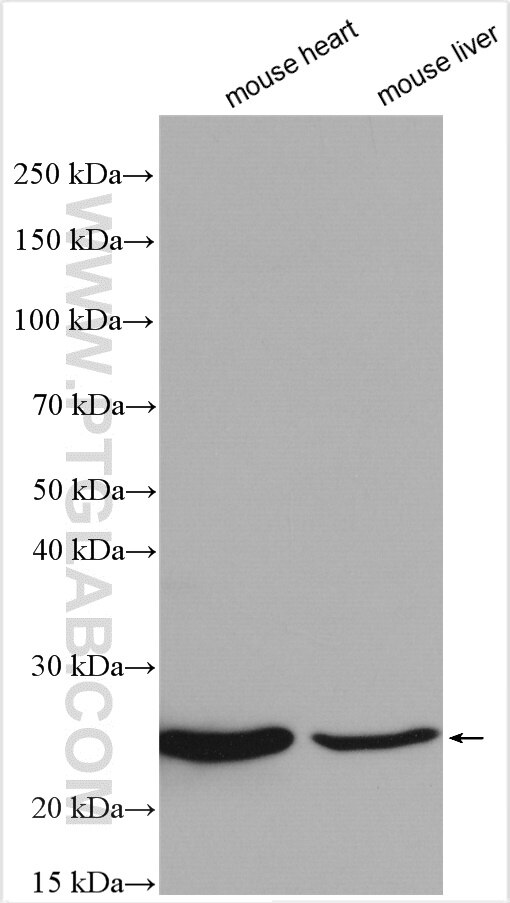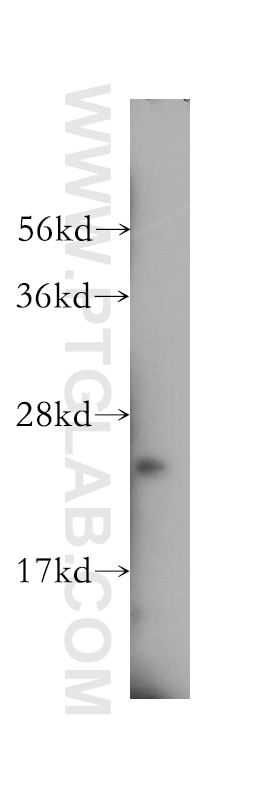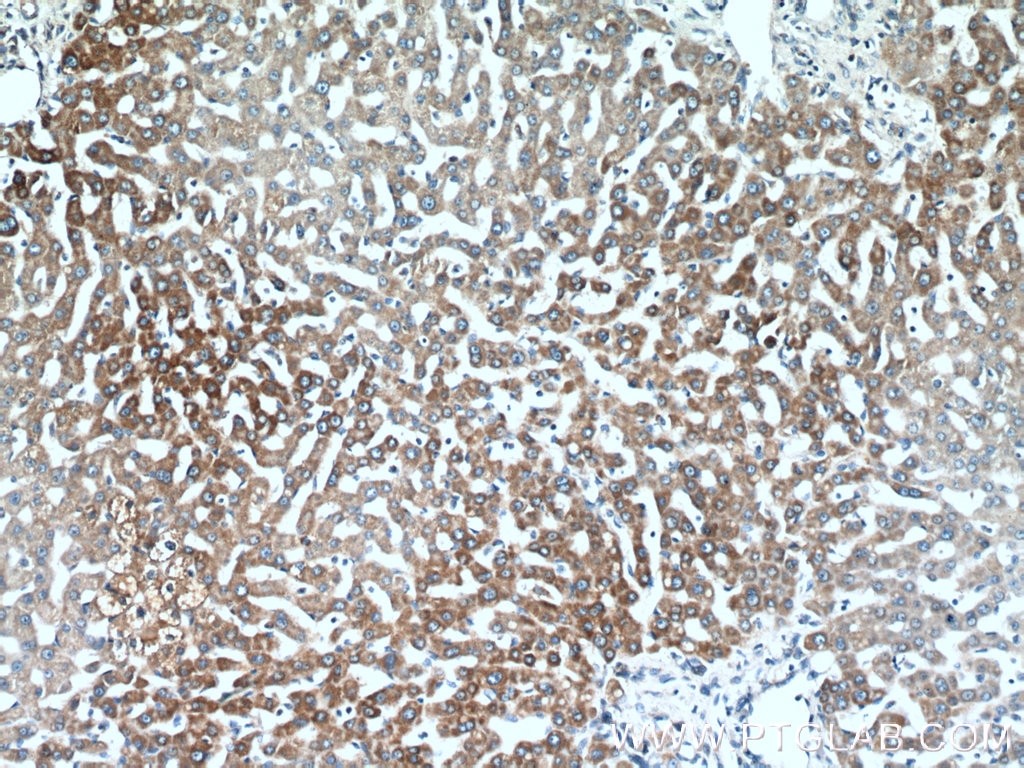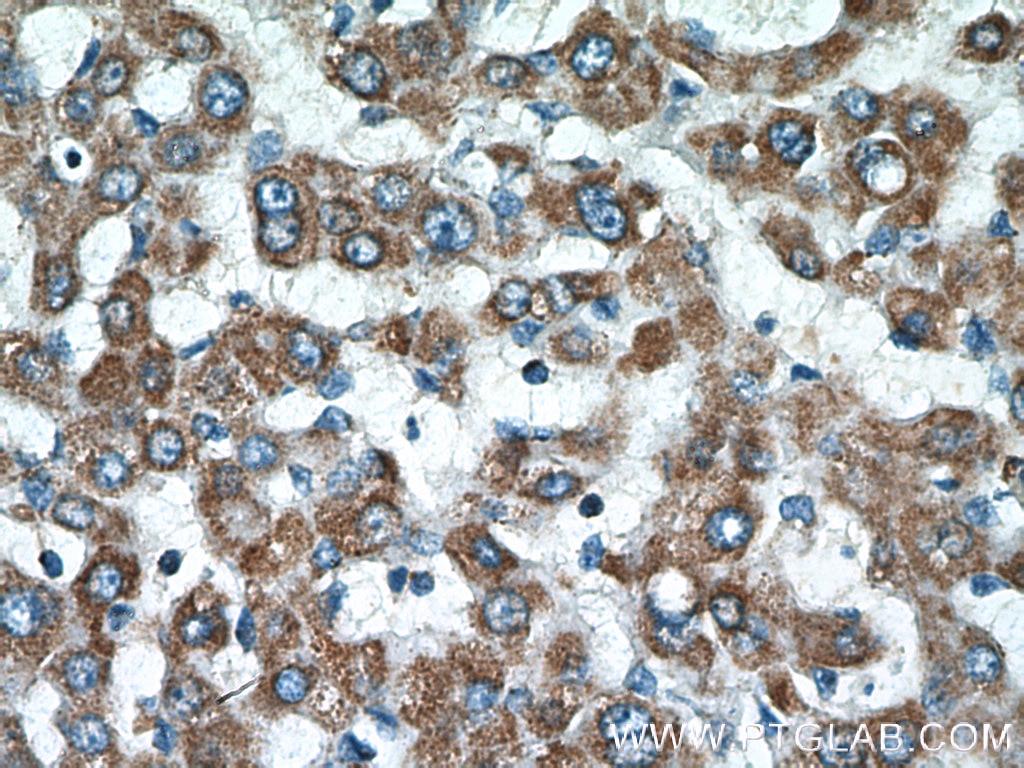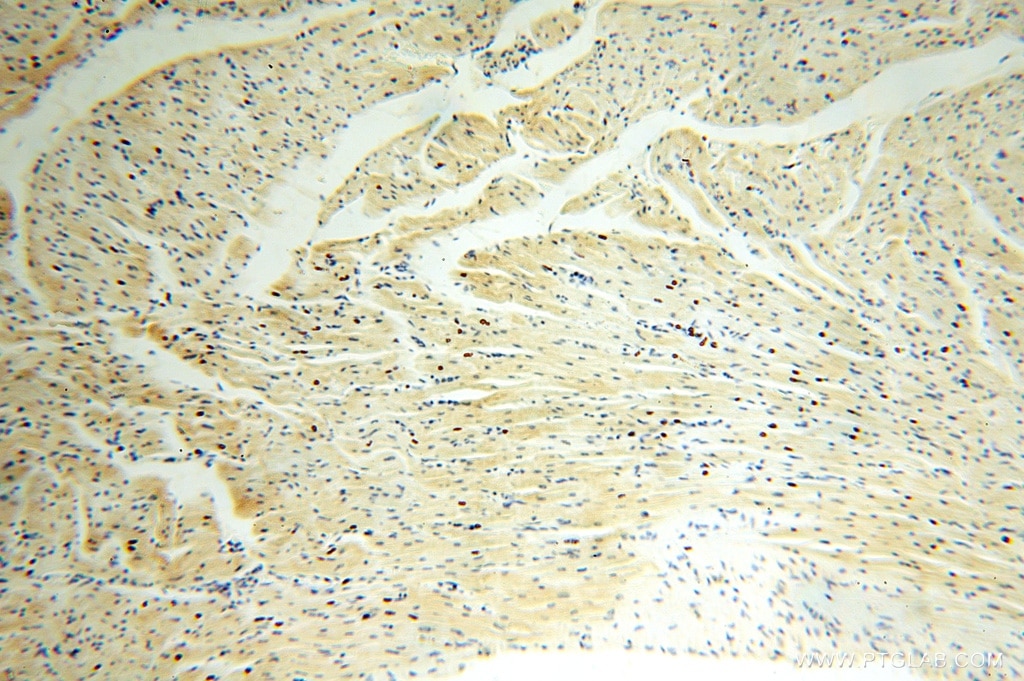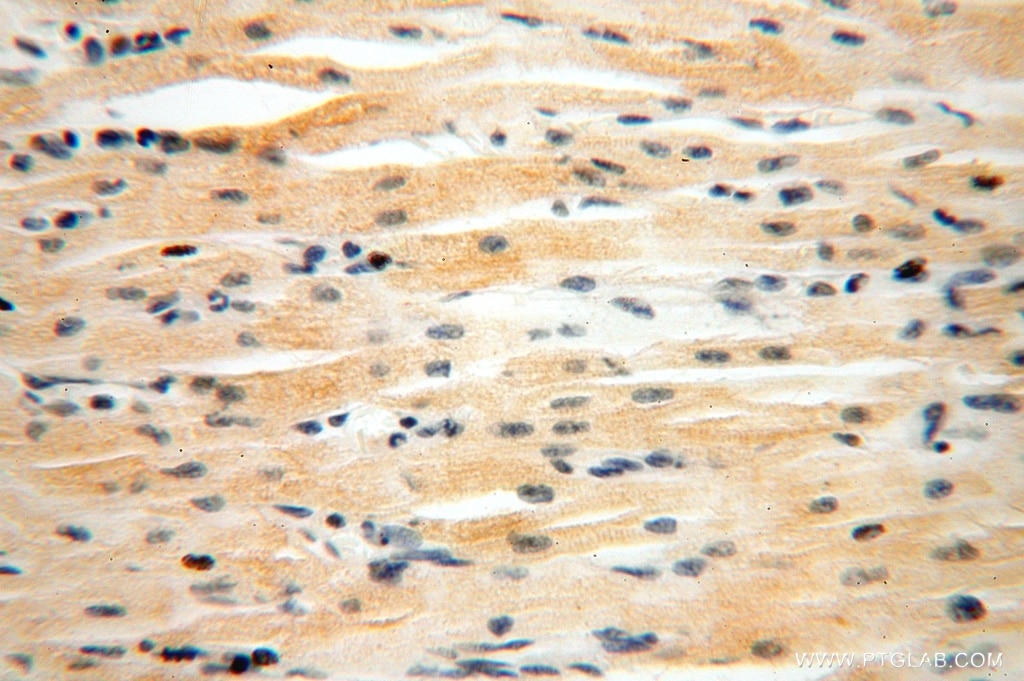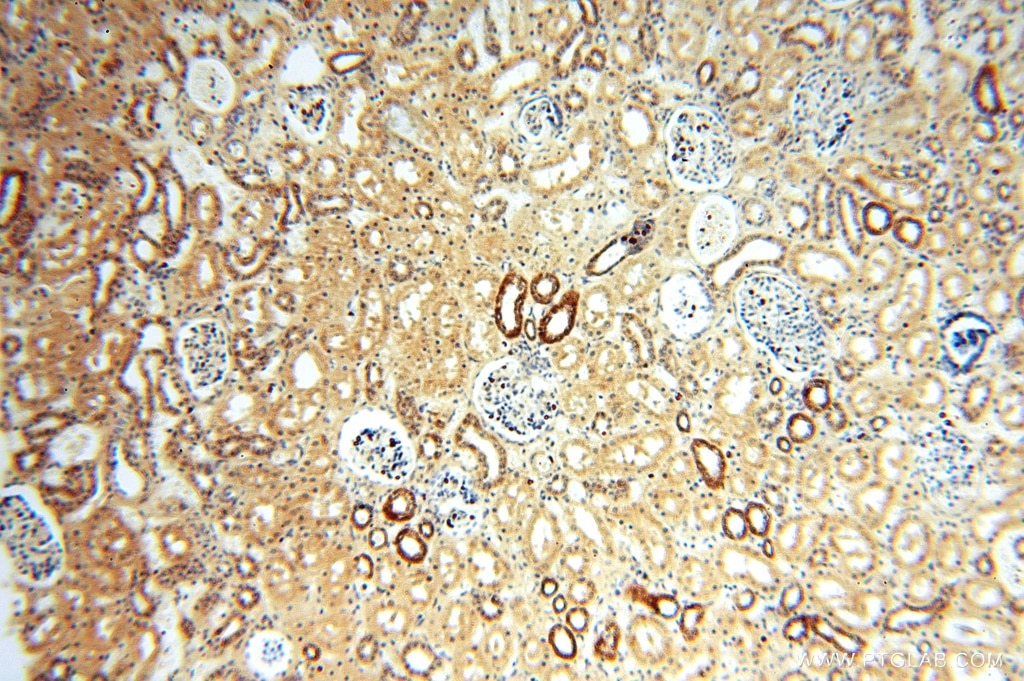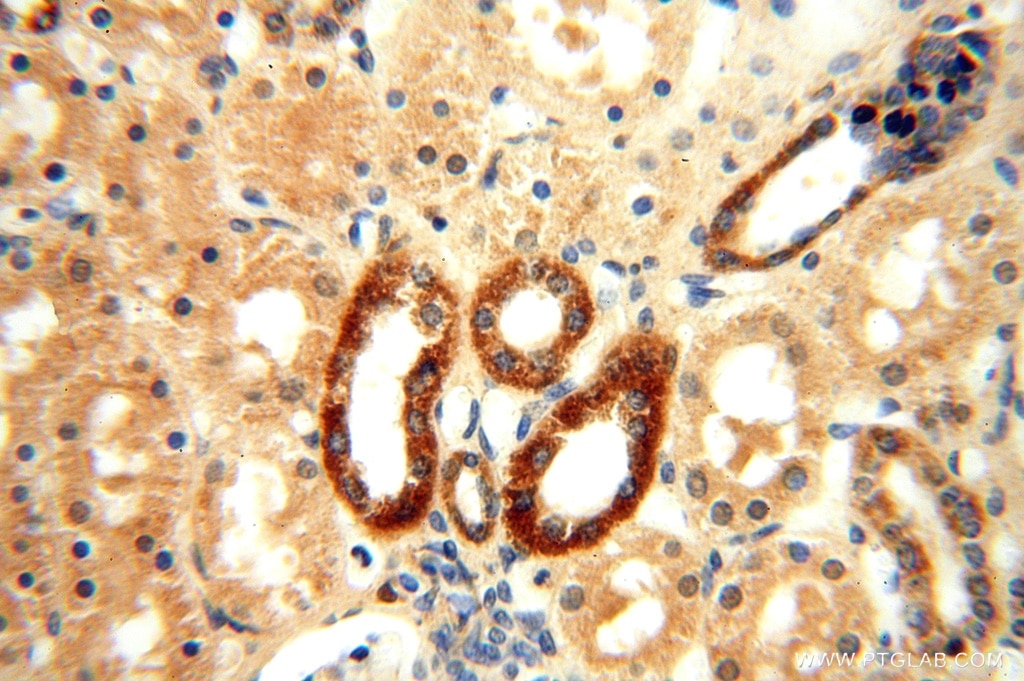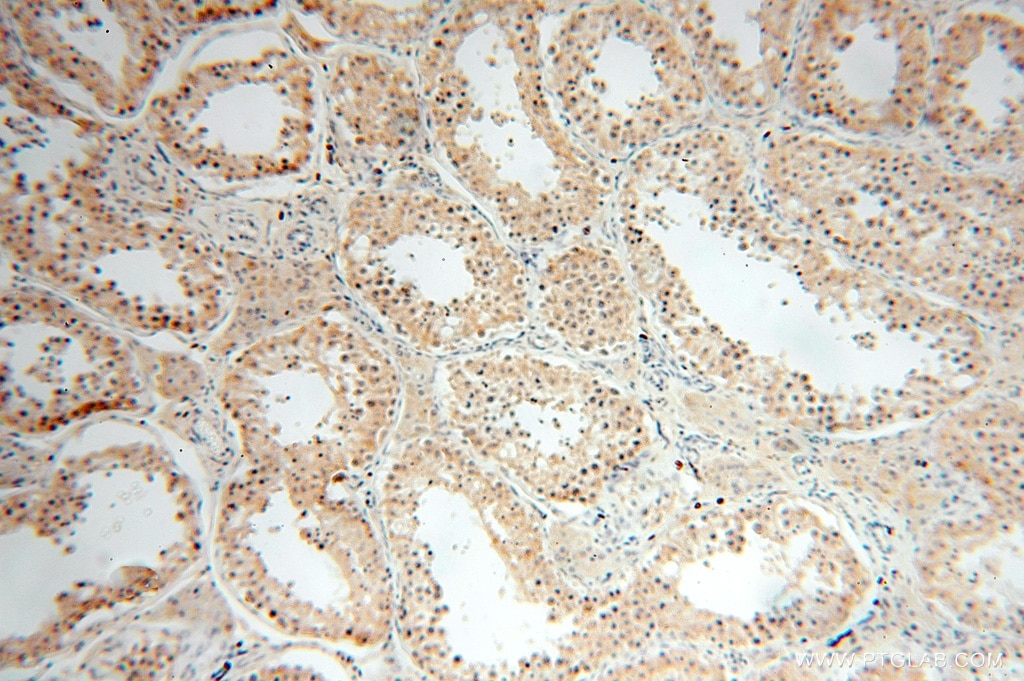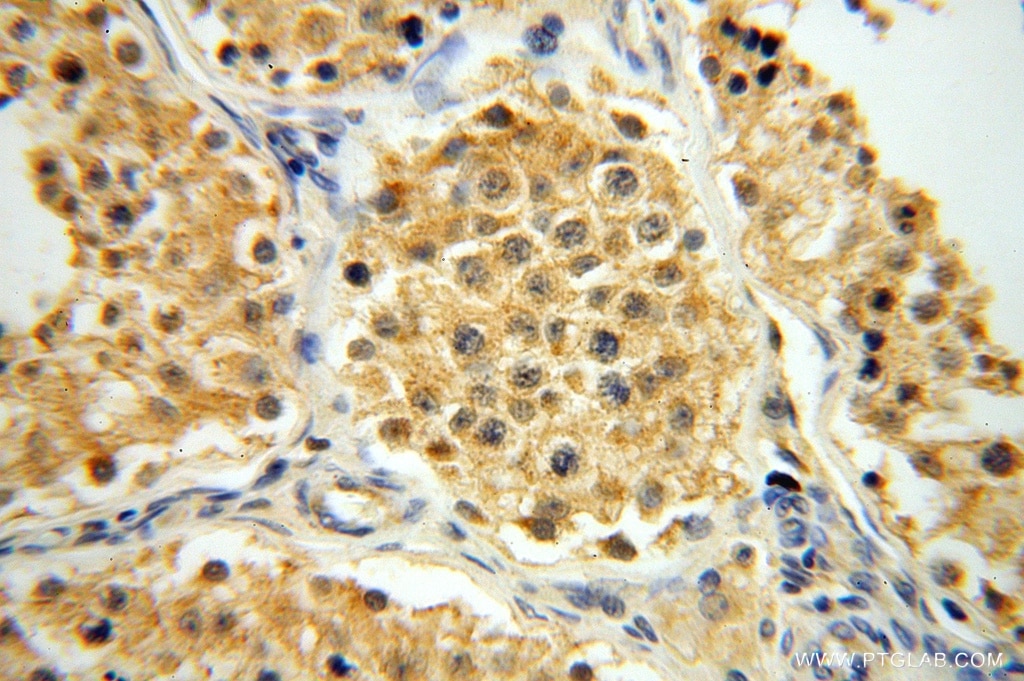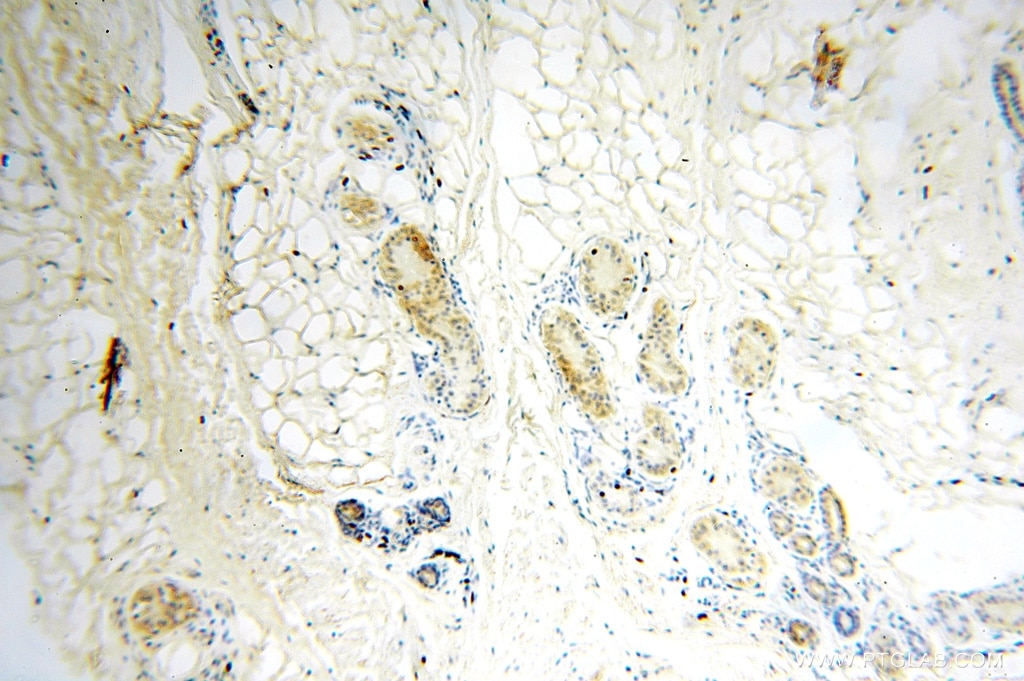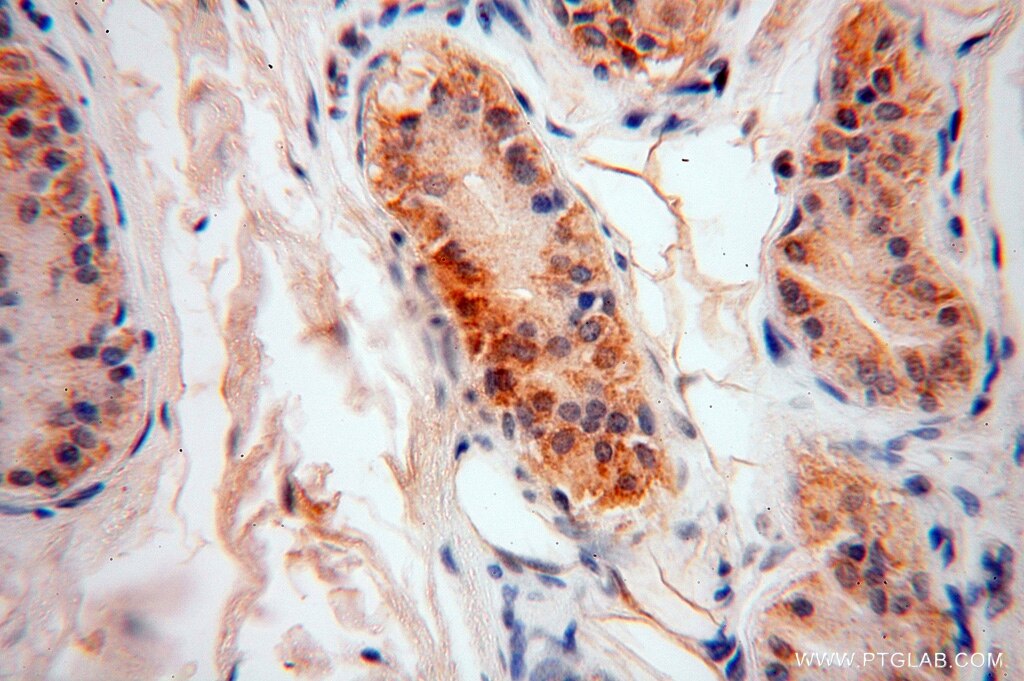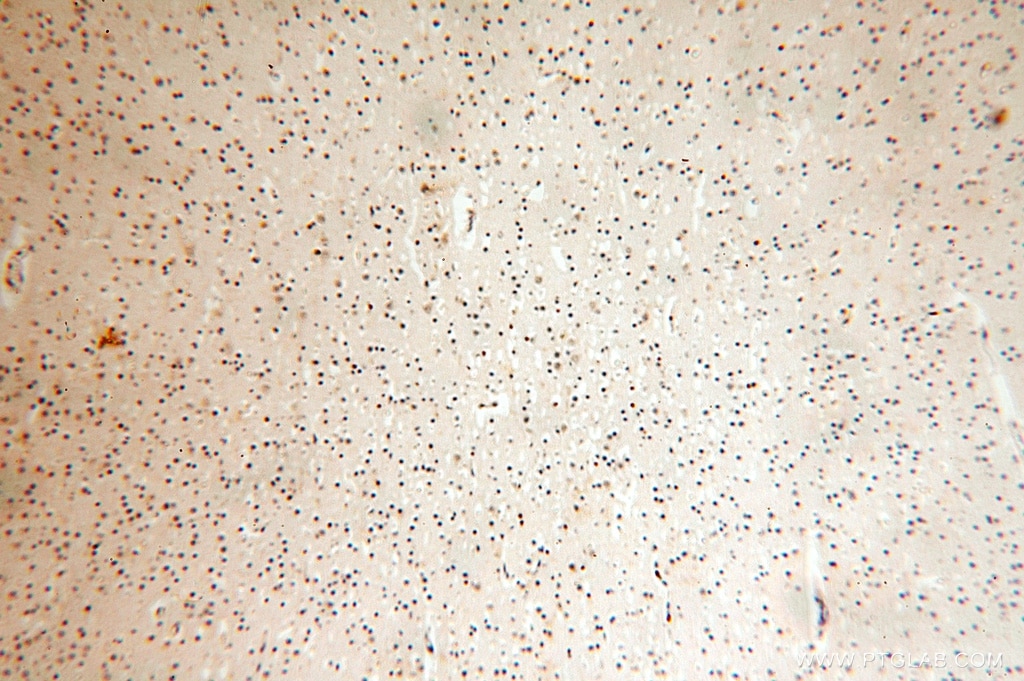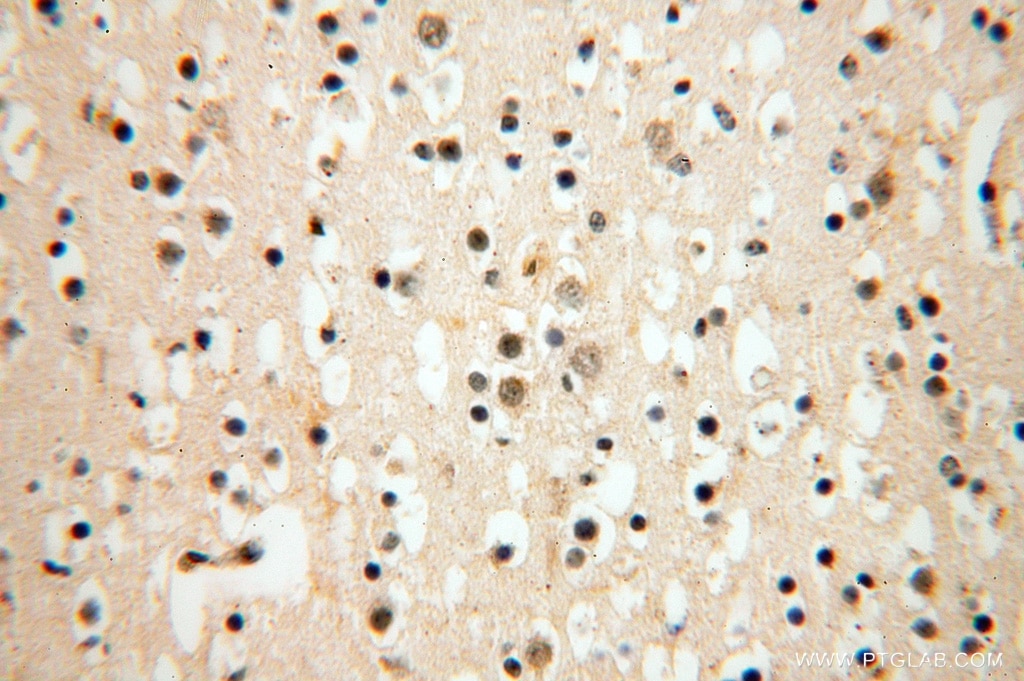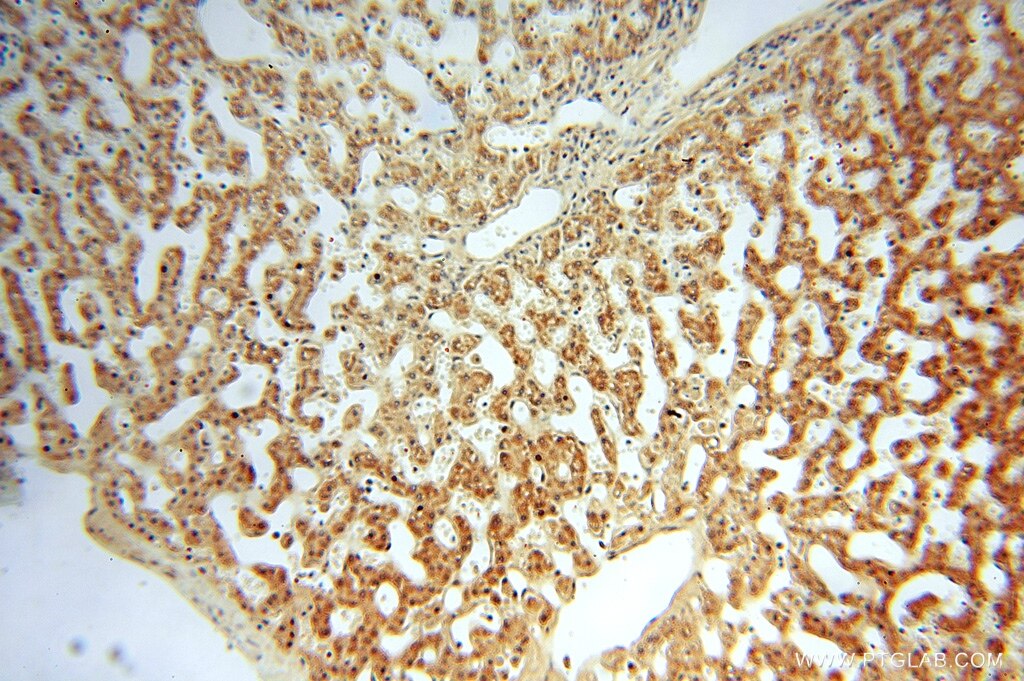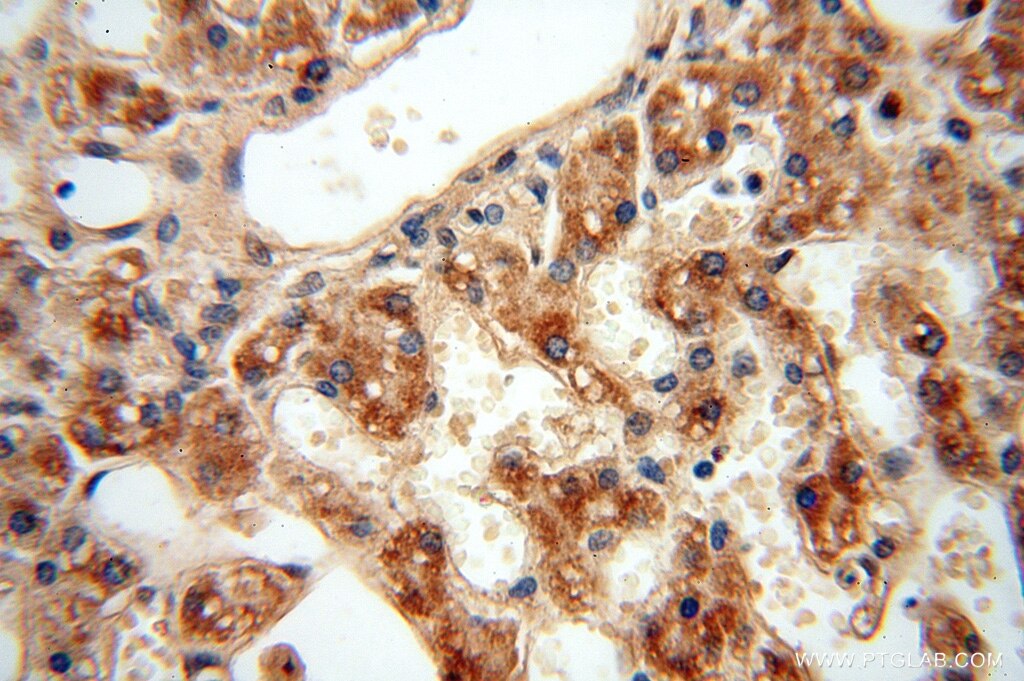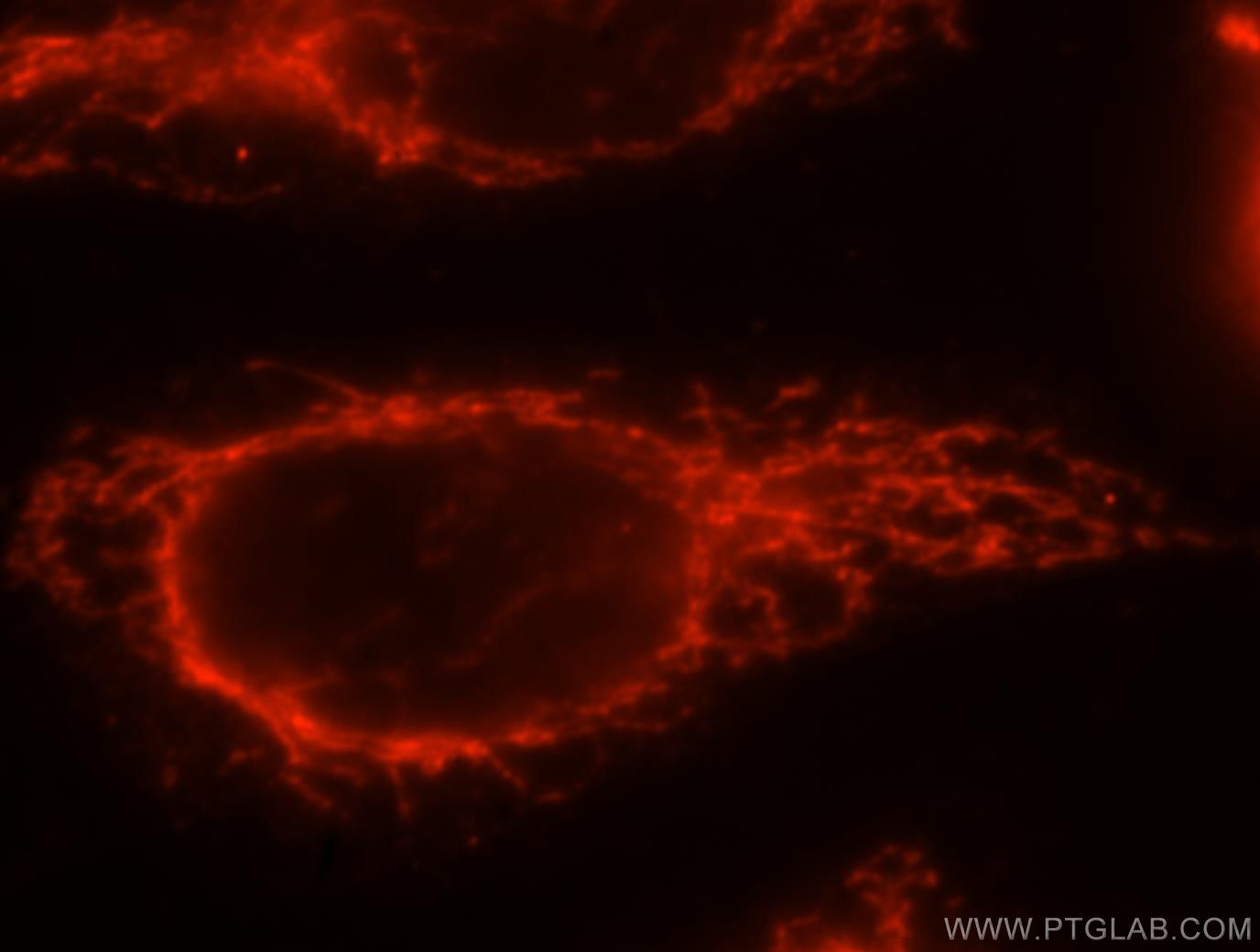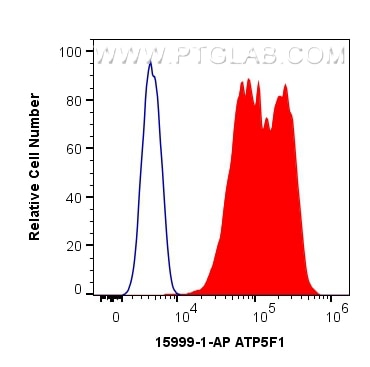Anticorps Polyclonal de lapin anti-ATP5F1
ATP5F1 Polyclonal Antibody for WB, IHC, ELISA, IF/ICC, FC (Intra)
Hôte / Isotype
Lapin / IgG
Réactivité testée
Humain, souris et plus (1)
Applications
WB, IHC, CoIP, ELISA, IF/ICC, FC (Intra)
Conjugaison
Non conjugué
N° de cat : 15999-1-AP
Synonymes
Galerie de données de validation
Applications testées
| Résultats positifs en WB | tissu cardiaque de souris, tissu de muscle squelettique de souris, tissu hépatique de souris |
| Résultats positifs en IHC | tissu hépatique humain, tissu cardiaque humain, tissu cérébral humain, tissu cutané humain, tissu rénal humain, tissu testiculaire humain il est suggéré de démasquer l'antigène avec un tampon de TE buffer pH 9.0; (*) À défaut, 'le démasquage de l'antigène peut être 'effectué avec un tampon citrate pH 6,0. |
| Résultats positifs en IF/ICC | cellules HeLa |
| Résultats positifs en FC (Intra) | cellules HeLa, |
Dilution recommandée
| Application | Dilution |
|---|---|
| Western Blot (WB) | WB : 1:500-1:2000 |
| Immunohistochimie (IHC) | IHC : 1:100-1:400 |
| Immunofluorescence (IF)/ICC | IF/ICC : 1:10-1:100 |
| Flow Cytometry (FC) (INTRA) | FC (INTRA) : 0.40 ug per 10^6 cells in a 100 µl suspension |
| It is recommended that this reagent should be titrated in each testing system to obtain optimal results. | |
| Sample-dependent, check data in validation data gallery | |
Applications publiées
| WB | See 21 publications below |
| IHC | See 1 publications below |
| IF | See 2 publications below |
| CoIP | See 1 publications below |
Informations sur le produit
15999-1-AP cible ATP5F1 dans les applications de WB, IHC, CoIP, ELISA, IF/ICC, FC (Intra) et montre une réactivité avec des échantillons Humain, souris
| Réactivité | Humain, souris |
| Réactivité citée | rat, Humain, souris |
| Hôte / Isotype | Lapin / IgG |
| Clonalité | Polyclonal |
| Type | Anticorps |
| Immunogène | ATP5F1 Protéine recombinante Ag8571 |
| Nom complet | ATP synthase, H+ transporting, mitochondrial F0 complex, subunit B1 |
| Masse moléculaire calculée | 256 aa, 29 kDa |
| Poids moléculaire observé | 25-30 kDa |
| Numéro d’acquisition GenBank | BC005366 |
| Symbole du gène | ATP5F1 |
| Identification du gène (NCBI) | 515 |
| Conjugaison | Non conjugué |
| Forme | Liquide |
| Méthode de purification | Purification par affinité contre l'antigène |
| Tampon de stockage | PBS avec azoture de sodium à 0,02 % et glycérol à 50 % pH 7,3 |
| Conditions de stockage | Stocker à -20°C. Stable pendant un an après l'expédition. L'aliquotage n'est pas nécessaire pour le stockage à -20oC Les 20ul contiennent 0,1% de BSA. |
Informations générales
ATP5F1(ATP synthase subunit b) belongs to the eukaryotic ATPase B chain family. The ATP5F1 gene encodes subunit B of the mitochondrial ATP synthase Fo unit, which contains 214-amino acid with a 42-amino acid import signal(PMID:1831354). Mitochondrial membrane ATP synthase(F1F0 ATP synthase or Complex V) produces ATP from ADP in the presence of a proton gradient across the membrane which is generated by electron transport complexes of the respiratory chain.
Protocole
| Product Specific Protocols | |
|---|---|
| WB protocol for ATP5F1 antibody 15999-1-AP | Download protocol |
| IHC protocol for ATP5F1 antibody 15999-1-AP | Download protocol |
| IF protocol for ATP5F1 antibody 15999-1-AP | Download protocol |
| FC protocol for ATP5F1 antibody 15999-1-AP | Download protocol |
| Standard Protocols | |
|---|---|
| Click here to view our Standard Protocols |
Publications
| Species | Application | Title |
|---|---|---|
Adv Mater Supramolecular Hydrogel with Ultra-Rapid Cell-Mediated Network Adaptation for Enhancing Cellular Metabolic Energetics and Tissue Regeneration | ||
Proc Natl Acad Sci U S A Evaluation of intramitochondrial ATP levels identifies G0/G1 switch gene 2 as a positive regulator of oxidative phosphorylation. | ||
Part Fibre Toxicol Transcriptomics of single dose and repeated carbon black and ozone inhalation co-exposure highlight progressive pulmonary mitochondrial dysfunction. | ||
Free Radic Biol Med Mitochondrial and glucose metabolic dysfunctions in granulosa cells induce impaired oocytes of polycystic ovary syndrome through Sirtuin 3. | ||
J Neurosci A Mutation in Hnrnph1 That Decreases Methamphetamine-Induced Reinforcement, Reward, and Dopamine Release and Increases Synaptosomal hnRNP H and Mitochondrial Proteins. | ||
Cell Death Dis Calcium sensing receptor protects high glucose-induced energy metabolism disorder via blocking gp78-ubiquitin proteasome pathway. |
Avis
The reviews below have been submitted by verified Proteintech customers who received an incentive forproviding their feedback.
FH siting (Verified Customer) (07-13-2020) | very good signal
 |
FH Yan (Verified Customer) (01-28-2020) | It worked very well with mouse heart tissue for western blot.
|
